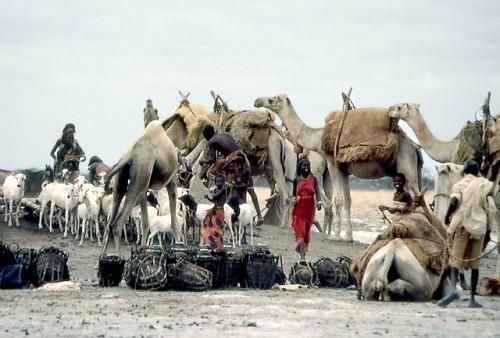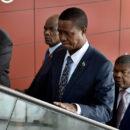North Africa Political Change – An RAS Guide



Tunisia and the ousting of Ben Ali came first – beginning in December 2010 and reaching a high-point when the President stepped down in January 2011.
The demonstrations were precipitated by high unemployment, food inflation, corruption, a lack of freedom of speech and other political freedom and poor living conditions.
The immediate spark for protests was the self-immolation of Mohamed Bouazizi – a Tunisian street vendor, which served as a rallying event for discontented people (many of them from younger generations.) Twitter and Facebook became important organising tolls for demonstrators. The pattern for protests across North Africa and the Middle East was thus established.
In Egypt, vast crowds gathered in Tahrir Square in the capital Cairo. The gathering was reported on extensively by international media, as were attempts by the Mubarak regime to fight back against the rising tide of protest – unleashing paid thugs or ‘supporters’ into the centre of the city , who rode at the protestors on horse and camel-back. This offensive was however unsuccessful, and the end of Mubarak’s 30 years in power was marked by the stated refusal of the army to open fire on the protestors. Power was transferred to a military council under the control of Omar Suleiman – appointed Vice-President by Mubarak in the latter stages of his regime’s collapse, and formerly Director of General Intelligence. Elections are scheduled for September.
Libya appears to be the most problematic of the ‘revolutionary’ actions of recent months. Attempts to oust Colonel Muammar Gadaffi – in power for 40 years – have been notably more violent than that of Tunisia or Egypt. Rebel groups from the East of the country quickly took control of their stronghold – Benghazi. Whilst foreign workers were frantically shipped out by their respective governments, Libya rapidly assumed the character of a country at war with itself. Western nations prevaricated over the extent to which intervention could be justified (and afforded) and the forces still loyal to the Colonel steadily appeared to be pushing back the rebels.
Presently, it is unclear what the final result will be, although it seems that neither side has the capacity to defeat the other. It is feared that the result will be a bloodbath, with the Gadaffi regime retaining control over the majority of the country due to its superior fire power and reserves of oil money.
Suggestions that protests would spread further South beyond the Sahara have largely been proved false. North Africa’s better educated legions of young unemployed have appeared to be a more fertile breeding ground for unified dissent against their long-time dictatorial regimes. It has been suggested that Sub-Saharan societies are too politically and socially divided to support this kind of mass action against their leaders.
Coverage from the RAS
Richard Dowden – Gaddafi – where have all the billions gone?
George Joffe – Libya: the internal dynamics of collapse
Jean-Baptiste Gallopin – Middle East and North Africa: The Earthquake
Richard Dowden – Gadaffi: King of Kings










